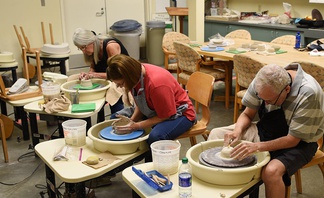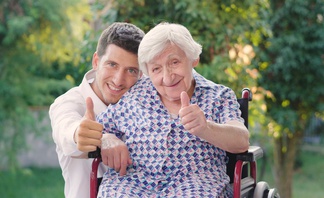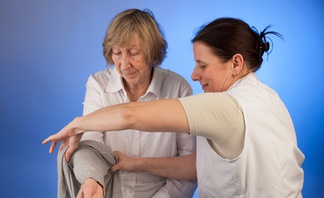When is the right time to get some help for your aging loved one?
That's the question everyone has to raise at some point. Either it's about your aging mom or dad, a relative you are taking care of, or any other person you are worried about, it's crucial to know and recognize the signs they need assistance. And to provide them with the essential help when it's time to.
Even though you might've just visited your senior loved one and they seemed perfectly fine, be aware of these small issues and try to spot the problems that seem so unimportant. And once you've recognized any of them, talk to the elderly and come up with a proper decision together.
1. Forgetfulness
A pale of mail that was never picked up, overdue bills, missed appointments and forgotten medications? A pet that wasn't fed on time? Expired groceries in the fridge? Forgotten name or a valuable date? Anything that points to any memory issues and forgetfulness is a sign there's a need for help.
2. Significant mood changes and unusual behaviors
Aggression, sudden feelings of anger, sadness, loneliness. Depression, sudden mood swings for no reason, issues in communication, any problems with expression of emotions. Paranoia, confusion, obsessive thoughts that lead to an unhealthy mental state. A sudden change of tastes, preferences, hobbies.
Sadly, all of the abovementioned is a reason to visit the doctor's and consider arranging additional care for a senior.
3. Strange changes in appearance
Dirty clothes, untidy look, bad odor, stains on the outfit or unbrushed hair? Has the elderly person stopped doing any of the regular hygiene routines? This is a serious sign that a senior has difficulties taking a bath, looking after their personal appearance, getting the laundry done, etc. And it's time to take care of this for them, solving the problem of a lack of personal hygiene.
Bruises, wounds, burns, injuries, or any other trauma should get your attention as well. This is serious and might point to the start of the disease, so don't hesitate to react.
What should I do? How to talk about this?
First of all, remain calm and ask the elderly person to have a chat with you. Sit down and talk about the possible options - assisted the living, in-home care, hiring additional help, etc. Try to keep your options open, show a senior that their opinion matters and you are looking for the best option out there that works for the entire family. If you decide to provide the additional care yourself - outline the schedule and what changes should be made for the work, personal life, etc.
Remember - once spotted any of these signs, you should take proper action and get the additional help for the elderly. It's difficult to talk about it, but is an essential step to provide your loved one with the necessary care, whether it will be by moving to an assisted living, hiring in-house care agency or choosing a different option. Work towards a perfect decision together and support your senior loved one - they will appreciate it a lot.





